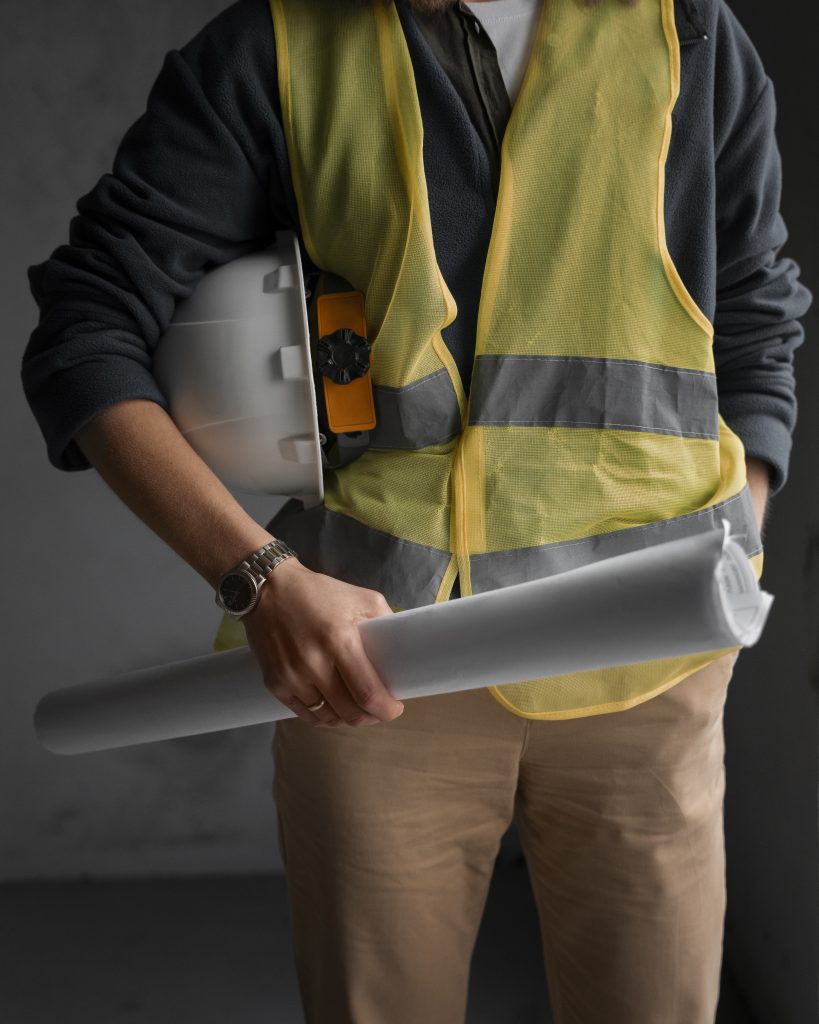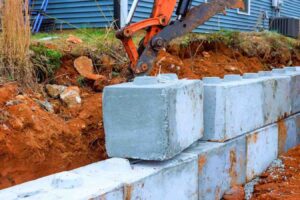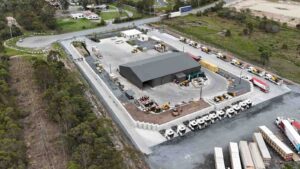Contractor licensing in Australia requires meeting strict state-regulated standards, holding a valid Australian contractor licence from authorities like the Queensland Building and Construction Commission (QBCC) or NSW Fair Trading. This ensures they have the qualifications, experience, and insurance to deliver safe, compliant construction projects, from retaining walls to commercial foundations. Learn the building contractor licence requirements by state, process, and why it matters for your next build.
What Does It Mean to Be a Licensed Contractor in Australia?
A contractor licensed in Australia holds a state-issued building contractor license, meeting strict standards to perform construction work like concreting or carpentry. Licensing ensures contractors have the skills, experience, and legal standing to deliver safe, high-quality projects. The distinction in licensed builder vs contractor in Australia often lies in scope—builders typically oversee larger projects, while contractors may specialize in specific trades.
Licensing is overseen by state and territory authorities, like the QBCC, NSW Fair Trading, or Victoria’s Building Authority (VBA). These bodies enforce the Australian contractor license requirements, ensuring compliance with standards like the Building Code of Australia (BCA). Whether you’re installing heavy-duty concrete blocks or constructing a commercial building, a licensed contractor brings expertise and accountability.
Key Requirements for Becoming a Licensed Contractor
Meeting contractor licensing requirements is essential to earn an Australian contractor licence. Here are the core criteria:
- Educational Qualifications: Contractors typically need a Certificate III or higher in their trade (e.g., concreting, carpentry) from a registered training organisation, such as a TAFE.
- Practical Experience: At least 2–4 years of hands-on experience or a completed apprenticeship is required to prove competence.
- Financial and Legal Checks: Applicants must clear bankruptcy checks and have no serious criminal convictions to demonstrate reliability.
- Insurance: Public liability insurance is mandatory, and some trades require home warranty insurance for residential projects.
Requirements vary by state and trade. For instance, a Queensland concreter may need a specific QBCC building contractor license, while a NSW contractor requires a Fair Trading licence.
The Licensing Process in Australia
Wondering how to become a contractor licensed in Australia? The process is straightforward with proper preparation. Here’s a step-by-step guide to meet building contractor licence requirements by state:
- Complete Training: Earn trade qualifications through a TAFE or registered training organisation.
- Gain Experience: Work under a licensed contractor or complete an apprenticeship to hone practical skills.
- Prepare Documentation: Compile proof of qualifications, experience, financial records, and insurance.
- Apply to the Regulator: Submit your application to the relevant authority (e.g., QBCC, VBA, or NSW Fair Trading) along with fees, which range from $100 to $1,000 depending on the licence type.
- Pass Assessments: Some trades require technical interviews or practical tests to confirm expertise.
- Receive Your Licence: Once approved, you’ll receive your Australian contractor license, valid for 1–5 years and renewable with ongoing compliance.
State-specific rules apply—NSW mandates a licence for projects over $5,000, while Victoria’s VBA may require registration for domestic builders. Learn how to check a contractor’s licence through state authority websites to ensure validity.
Benefits of Hiring a Licensed Contractor
Hiring a licensed contractor in Australia delivers clear advantages for project owners:
- Quality Assurance: Licensed contractors adhere to Australian standards, ensuring durable, safe outcomes. For example, when installing interlocking concrete blocks for a retaining wall, a licensed contractor ensures precise placement and compliance with AS4678 standards.
- Compliance: They manage building codes and permits, reducing fines or rework.
- Insurance Protections: Licensed contractors carry public liability insurance, protecting you from financial risks if accidents occur on-site.
- Peace of Mind: With verified skills and legal standing, you can trust your project is in capable hands. Always confirm how to check a contractor’s licence for added security.
At InfraBlock, we’ve seen licensed contractors can help elevate projects. Our precast concrete solutions, like tie-down blocks for heavy machinery, perform best when installed by licensed professionals who understand load requirements and site conditions, ensuring long-term stability.
Common Misconceptions About Contractor Licensing in Australia
Let’s debunk a few myths about contractor licensing:
- “All contractors are licensed.” Not true—unlicensed operators often cut corners. Always verify a contractor’s licence number with the state authority.
- “Licensing guarantees perfection.” Licensing ensures competence, not flawless execution. Review past projects and client feedback for added confidence.
- “Licensing is the same nationwide.” Each state has distinct rules, so a Queensland licence may not be valid in NSW. This is key in understanding licensed builder vs contractor in Australia, as builders often face stricter regulations.
Understanding these misconceptions helps you hire confidently for your construction projects.
How InfraBlock Works with Licensed Contractors
InfraBlock partners with licensed contractors in Australia to deliver high-quality construction solutions, from urban projects to mining sites. Our precast concrete blocks, including curvature retaining blocks, tie-down blocks, and industrial interlocking blocks, ensure durability and easy installation for time-sensitive builds.
For example, our curvature retaining blocks streamline retaining wall construction, enabling licensed contractors to meet Australian standards efficiently. From stabilizing slopes to securing equipment, InfraBlock’s products ensure high-quality results for projects requiring a licensed building contractor.
Choose Licensed Contractors for Your Next Project
Hiring a licensed contractor in Australia is essential for safe, compliant, and high-quality construction. From meeting tough contractor licensing requirements to navigating the Australian contractor licence process, licensed contractors bring expertise and reliability to every job. Whether you’re building a commercial foundation or installing a sustainable retaining wall, trust licensed professionals to deliver.
Ensure durable, compliant construction with InfraBlock’s precast concrete solutions, tailored for contractors licensed in Australia. Call us at 0478 102 201 or email info@infrablock.com.au for a quote to build efficiently and confidently.





